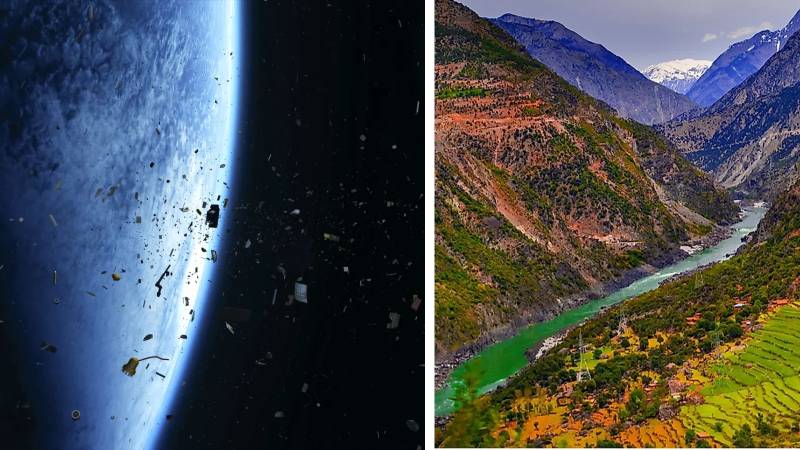
If you think about it, economic models are more of psychological models that define our behaviour. They program our behaviour towards the environment and – let’s be honest – our behaviours have not reaped healthy results. Today, the oceans are flooded with plastic, and it seems like matter has evolved and humans have devolved.
The same behaviour from us has resulted in the problem of space debris that poses a serious threat. About 37,000 pieces of space debris bigger than 10 centimetres are now in orbit, and another million pieces smaller than 10 centimetres are also estimated to be there. Some sources say that more than a million satellites could be heading toward Earth.
Space sustainability relooks at the universe. It revisits space with a lens of stewardship redefining our behaviour towards serving rather than exercising. Cleaning up space is similar to trying to clean up a place that has been cluttered for decades but with the extra twists of legal tapes, political clashes, and some complicated scientific issues. Imagine trying to pick up pieces of trash that are rapidly gathering around the Earth, and if you deal with them incorrectly, you might cause an even bigger problem. Plus, before you even begin, you must get authorisation from several different countries that cannot always agree on who should conduct the cleaning or who will pay for it.
It's critical that we figure this out because all of that debris flying around could make it difficult for astronauts to safely explore space or for everyone to launch missions to other planets.
Fortunately, recent initiatives demonstrate the international community's commitment to resolving the critical issue of space debris while also encouraging responsible exploration and the use of outer space.
Privateer Space is an example in itself. Founded by Dr Moriba Jah, Steve Wozniak and Alex Fielding, Privateer Space is developing innovative solutions to keep space clean. They intend to build something similar to a large fishing net that can travel into space and gather debris. This large fishing net would function by floating around in orbit and collecting all the bits of old satellites and metal that are floating around. Once the net catches this space trash, it may be securely sent back to Earth or sent into orbit where it will not harm anyone. Consider it a space version of garbage trucks.
Privateer Space started the Pono project at the end of November 2023. "Doing what's right" is what Pono means in Hawaiian. Pono is all about getting a better look at space to keep track of the junk that's floating around. Here, a data ride sharing system is being made so that everyone can share knowledge about where space debris is. This will help keep satellites safe and avoid collisions. This is a part of a bigger plan to make a long-lasting way to get to and use space data.
As a Chief Scientist Officer at Privateer, Dr Moriba Jah is thinking about more than just cleaning up the area. By reusing and recovering what is already there, he means stopping a problem before it starts. In his most recent works, Dr Moriba Jah imagines a world where space is sustainable through a circular space economy that focuses on recycling and reusing space assets to cut down on waste and fight space debris. By reusing and recovering what is already there, he means stopping a problem before it starts. The idea behind this is that we should be smart about our time in space so that it stays clean and safe for everyone in the future. He emphasises in his writings how important it is to use data to help control space traffic and encourages international collaboration in these efforts. Dr Moriba Jah's vision is a call to action that urges people around the world to come up with creative and responsible standards to keep space travel safe and viable for future generations.
One of the recent companies that have raised a voice for space sustainability is Space Guardian, which is Pakistan's first space sustainability research company, using Traditional Ecological Knowledge (TEK) for research and policy creation. I believe that TEK may help people change their behaviour and act more responsibly in space by helping them understand and appreciate how everything is connected. The research at Space Guardian looks at space travel through the lens of TEK to make sure that our adventures beyond Earth are safe and open to everyone. It may be possible to protect the final boundary for future generations by “combining ancient wisdom with modern science”, as Dr Moriba Jah says. In 2023, the National Parliamentary Task Force on UN SDG recognised our work.
These case studies highlight the dynamic and cooperative efforts being made to make sure that space travel is beyond a race and for higher purposes. Not only do they show how important it is to keep improving technology and working together with other countries, but they also show how space is becoming more and more seen as a global asset that needs to be carefully controlled. As we keep pushing the limits of what is possible in space, these efforts show how to make sure that future generations will be able to reach and safely explore space.

